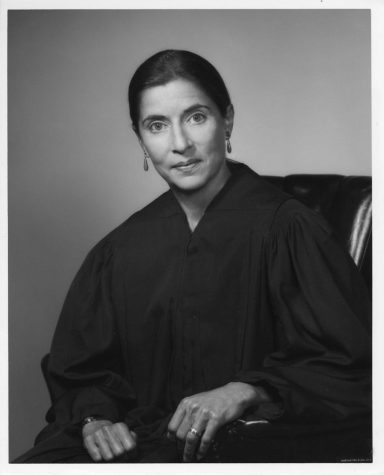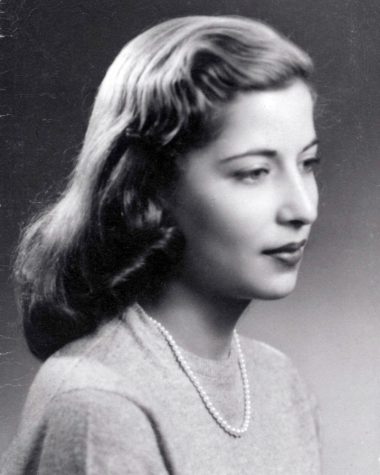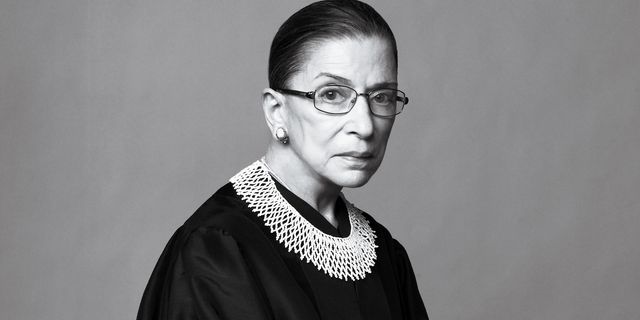Notorious
The Life and Legacy of Supreme Court Justice Ruth Bader Ginsburg
The recent death of Supreme Court Justice Ruth Bader Ginsburg is deeply saddening. Her successes in her career created equality for women and redefined the meaning of feminism. Her singular battle to rewrite gender, racial, and sexual inequality laws was enough to inspire all, and created a legacy for future generations to follow along the way.
Justice Ginsburg was born into a low income family, which shaped her eventual personal and career path. Her mother Cecelia Bader, one of her biggest influences, taught Ginsburg determination and resilience even in the hardest of times. Always striving for success, Ginsburg graduated from James Madison highschool at the top of her class. Sadly, her mother lost her battle with cancer the following day. Further events such as being one of only eight women in a law class of 500 men at Harvard, and having her first child while being a full time law student taught her valuable lessons that contributed to her life-long success.

However, this success did not come easily. Despite making the law review at both Harvard and Columbia, and graduating at the top of her class, she couldn’t get a job. The unfairness and inequality in the professional world was blatant. According to an NPR interview with Kathleen Peratis, “As a professor, Ginsburg was paid less than her male colleagues. She hid a pregnancy under baggy clothes so she wouldn’t lose her teaching job. After becoming a litigator, Ginsburg took discriminatory laws and methodically eviscerated them, one by one.”
She was later sworn into the Supreme Court by President Bill Clinton after being appointed to the DC District Court by Jimmy Carter in 1980. RBG was one of the first Jewish justices and the second female Supreme Court Justice in American history, taking the oath in 1993.

Modern women have been given many freedoms that have been available to men for years, and a large part of that is because of RBG. Whether or not she is idolized by women, Ginsburg has had an impact on every female’s rights. When asked by her professor at Harvard Law School in 1956 why she was occupying a chair that was assigned to one of her male counterparts, Ginsburg changed her motive for attending law school. According to ACLU, “Ginsburg attended law school, not originally for women’s rights work, but ‘for personal, selfish reasons. [She] thought [she] could do a lawyer’s job better than any other.’”
Establishing the ACLU Women’s Rights Project in 1972, RBG began to redefine sex discrimination. In the 1979 Duren vs. Missouri case, Ginsburg argued that women should be granted the ability to serve on juries based entirely on the fact that women should be valued the same as men. In 1996 Ginsburg wrote the majority opinion in The US v Virginia saying that it is “unconstitutional for schools funded by taxpayer dollars to bar women” from admissions, according to USA Today. In 2007, she disagreed with the court’s decision to make it more difficult for women who are paid less than men for equal work to seek repayment. In 2015, she won the 5-4 majority vote in the Obergefell vs. Hodges case, which allowed queer women and all members of the LGBTQ+ community the right to same sex marriage.
In the end, Ruth Bader Ginsburg did not just help women. By the time of her death, she was named one of the top 100 most influential individuals, and one of the top 10 most influential individuals 80 and over by Time. She not only changed the rights granted to females across the country, but granted freedoms to oppressed individuals, such as the LGBTQ+ community, that otherwise would have never been possible. Although her death is deeply saddening, RBG’s legacy lives on through the lives of the people that she helped and inspired through her successful efforts to change the country for the better.

A senior at the Albuquerque Academy, Stella Hudson has been writing for The Advocate since the beginning of her sophomore year. Her work centers mostly...







